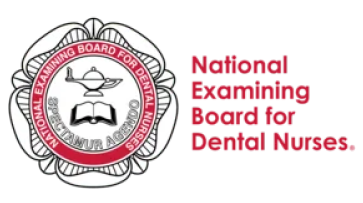Step-by-Step Guide on how to become a Qualified Dental Nurse

What is a Dental Nurse?
They provide ‘chair-side support’ for the dental team, which includes dentists, dental therapists, hygienists and technicians. Dental Nursing is tremendously satisfying as an occupation, because you are the vital link between the patient and the dentist. It’s a highly important role and the future career options available to qualified dental nurses are incredibly varied.
Earn while you learn!
This is one of the most favourable routes while studying towards the level three National Diploma as it gives you the opportunity to be employed as a Trainee Dental Nurse and receiving a salary from the Dental practice.
What is the Dental Nursing Course?
The Dental Nursing course is designed to prepare students for the NEBDN National Diploma in Dental Nursing and subsequent registration with the General Dental Council (GDC). The course will allow you to earn while you learn and when completed will open up an exciting range of career prospects within the dental industry.
The Level 3 Diploma in Dental Nursing is a one year equivalent part-time course and candidates are expected to take the first stage of the examination within 12-18 months of starting the course.
How can I join the course and become a qualified Dental Nurse?
Depending upon your current situation there are two ways you can join the course and become a qualified Dental Nurse:
Situation one: If you are already working in a Dental Practice as a Trainee Dental Nurse, you need to enrol on a recognised Dental Nursing course (part-time) where you learn the theory part of the course and are supported to complete the real-life work experience portfolio Record of Experience (RoE). You will be guided to the course examinations in order to gain the National Dental Nursing Diploma qualification which enables you to register with the General Dental Council (GDC) and become a fully qualified Dental Nurse. This will lead you to many other career opportunities and allow you to progress to a range of professional roles.
Situation two: If you are not working in a Dental Practice but thinking about joining the course you need to be employed as a Trainee Dental Nurse within 3 months of the course starting. This will allow you to complete the real-life work experience portfolio Record of Experience (RoE). We prefer you to work full-time so that you are exposed to the practical experience which will help you with the theory part of the course. We will assist you to find a suitable dental practice.
In either situation you have two study modes to choose from:
Online – where you can study at your own pace and have continuous access to our learning resources. This saves time and travel costs and includes:
- Immediate access to course materials
- Detailed video course contents where you can play, pause and rewind
- Step-by-step Instruction
- Ongoing learning support and continuous feedback
Face to face – a traditional classroom-based course in small groups (maximum 15) held normally twice a month over one year at our campuses in London or Reading or at one of our regional centres throughout the UK. The classes provide:
- A fixed timetable and scheme of work to allow you to finish the course within 12 months or earlier
- Tutor led classes where you can interact with the tutor and other students
- Experience of the School academic community.
Entry criteria: There are no formal entry qualifications but students are expected to be educated to good GCSE level or equivalent and have a good command of English language. Students are not admitted under the age of 18 and must be UK residents with evidence of a right to work.
Course components
There are three different components of the course that you will need to complete in order to sit your exams. These comprise:
– The teaching provided by the school
– Work Experience in Dental Practice
– Your Record of Experience (RoE)
Assessment methods
• NEBDN Record of Experience (RoE) to document your clinical competence
• NEBDN Written Examination (multiple choice questions)
• NEBDN Objective Structured Clinical Examination (OSCE).
Career Progression
After completing the course, you can progress onto post-registration qualifications in radiography, oral health education, sedation nursing, implant nursing, orthodontic nursing, and fluoride application.
You can also use the course as entry to a number of higher education courses, including foundation and bachelor’s degrees.
Job opportunities
Candidates can progress into other dentistry roles such as:
Dental Practice Manager
Dental Technician
Dental Hygienist
Dental Therapist
Dentist
Dental Tutor.
There’s never been a better time to start your new career and get qualified as a Dental Nurse!
Why Choose the School of Dental Nursing?
- A choice of flexible online learning or face-to-face classes on Campus
- An industry recognised professional qualification leading to secure employment
- Our commitment to your academic success and personal development
- Tuition by our highly professional and experienced staff
- A clear fee structure which is flexible and affordable
- An excellent record of student success and achievement.
How much does it cost?
The total tuition fee is £1490 (excluding non-refundable registration and NEBDN examination fee) payable by instalments.
Is there a payment plan?
We provide the facility to pay by instalments and there are three components:
1- £150 registration fee (non-refundable)
2- An initial course fee of £390 followed 5 monthly instalments of £220
3- NEBDN Examination fee: £485 payable at the start of the work placement.
How to apply?
In order to secure a place on the course and start learning you need to take the following steps:
b- Provide the necessary documents as specified
c- Make an initial Payment.
Need more information?
Please contact us by telephone – 0208 993 4500 or via email- dental@schoolofdentalnursing.com to our friendly administrative team.








